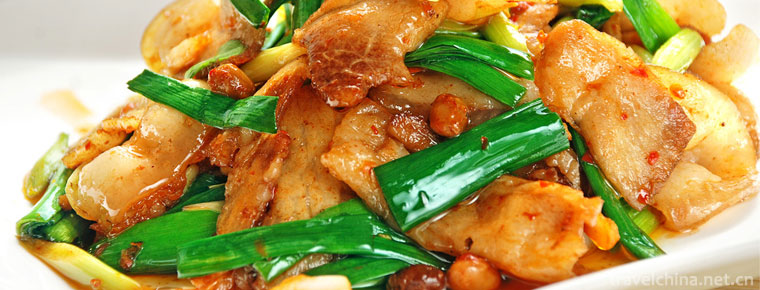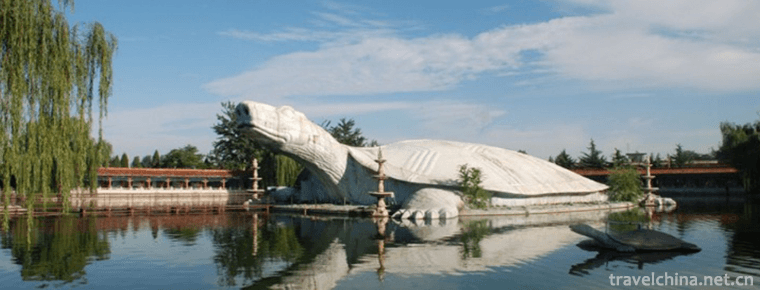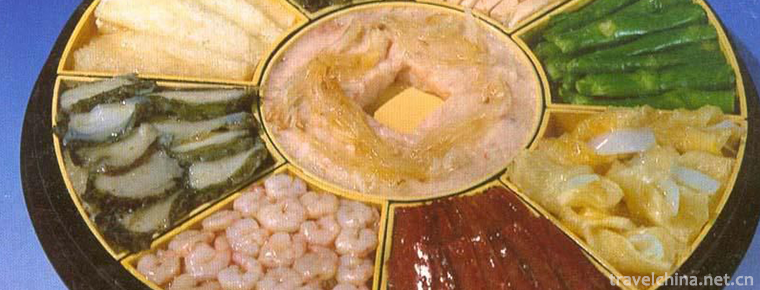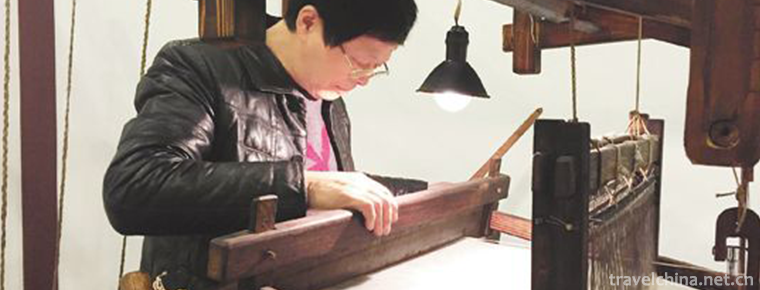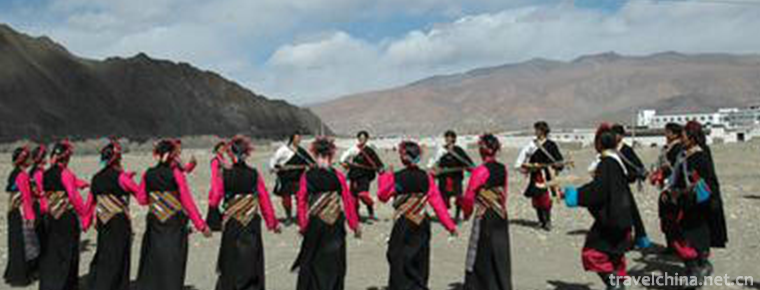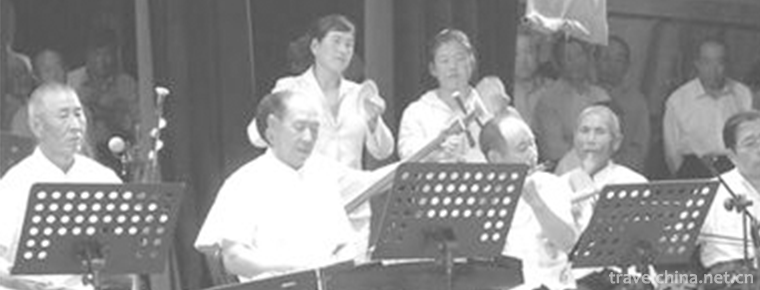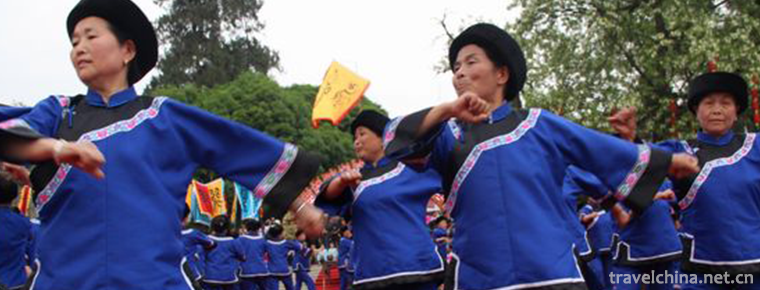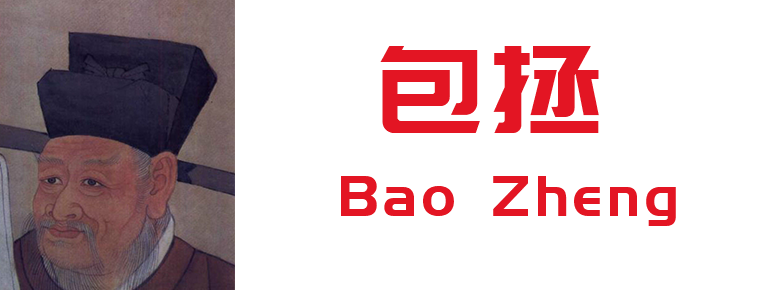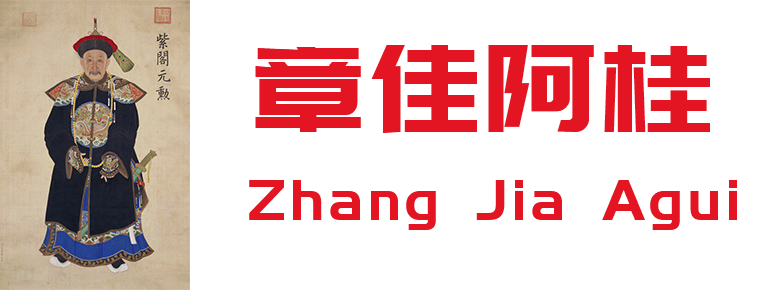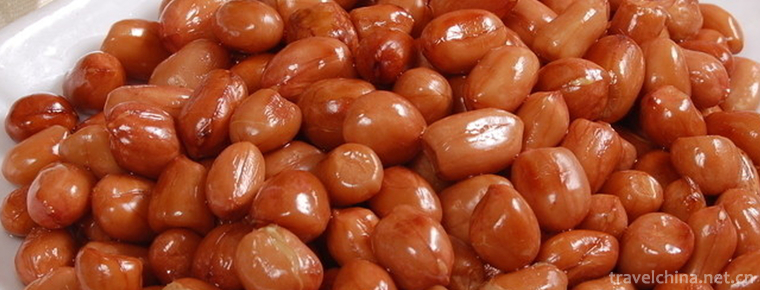Pingnanping Opera
Pingnanping Opera
Pingnanping opera is a kind of traditional opera with a history of 400 years. As the predecessor of Fujian opera, the main features of the opera are that Taobai singing uses Fuzhou Mandarin, the front stage singing and the back stage gang, that is, a very old traditional folk singing form of "one person opens his mouth, everyone joins in", like tamping songs and Yangko. Pingjiao Opera is a kind of high-pitched opera with traditional local dialects in Fujian, which is a unique local opera in Fujian. It originated in Pingnan and spread in Ningde and Fuzhou. It can be said to be one of the predecessors of Fujian Opera. Pingju opera mostly absorbs local folk songs and slang. The content of the performance mostly shows love, marriage and working life, which is popular with the masses.
On June 7, 2008, Pingnan County of Fujian Province declared "Pingnan Pingju" as the second batch of national intangible cultural heritage approved by the State Council.
historical origin
Pingshuo Opera is one of the predecessors of Fujian Opera, which evolved from the performing art of "piggyback story" (also known as "shoulder shed") popular in eastern Fujian in the late Ming and early Qing Dynasties. It was formed in the early Qing Dynasty and flourished in the years of Xianfeng and Tongzhi in Qing Dynasty. It originated in Pingnan, Fujian Province, and was popular in northeastern Fujian and Fuzhou. It sings in the local dialect and is so vulgar as to speak that it gets its name. According to the survey, 115 villages in Pingnan County have held peace talks since the early Qing Dynasty. From the development of Pingnan Pingju Opera Class, the birthplace of Pingnan Opera in Fujian Province is Pingnan.
Longjieping Workshop was built in Kangxi. Its predecessor was Geng Jun, who was the king of Jingnan who guarded Fujian Province, and Longgang Village in Pingnan, who advocated that Liangrui Brothers planned the "Jianghu Class" introduced during the period of anti-Qing and Ming Dynasties. Zhang Zhishen, a famous playwright in the late Ming Dynasty, became famous at the age of 20 and 30. He was called "a generation of master" of playwrights by later generations, and was born from the Longjie playwright class.
In 1984, at the home of an old artist surnamed Lu in Longyuan Village, Tangkou Township, Pingnan, two boxes of costumes left over from the Longyuanping Workshop in the village during the Qing and Jiaqing Dynasties were found. There were 31 costumes, skirts, mangyang hangings and hats worn by the roles of Sheng, Dan, Jing and the last. The embroidery was exquisite and had a history of more than 100 years. This is the largest number of ancient opera costumes found in Fujian since the founding of New China, with a clear chronological record.
"Dongshan Hill, Peace Workshop, Taipei Backdoor Hill, Husband to play, women Guantianshan, played in June 4, and August 3." Local traditional folk songs can be seen in Pingnanping opera. From the end of Guangxu period in Qing Dynasty to the beginning of the Republic of China, Pingjiao Opera began to combine with Confucian Opera and Jianghu Opera, commonly known as "Three-in-one Sound", to form the rudiment of Fujian Opera today.
Confucian opera and Jianghu opera have ceased to exist. Only the music singing tone remains in Fujian opera, while Pinghua opera still remains in Pingnan in an independent form. Restricted by various factors, in the 1980s, Pingjiao Opera was basically suspended. Pingnan began to carry out the rescue and excavation work of Pingnan opera art, and made Pingnan opera shine with new light. Pingnanping Lecture has been listed in the second batch of national intangible cultural heritage list recommended by the Ministry of Culture of China.
artistic characteristics
Pingnanping opera singing tune originated from the traditional folk songs in Northeast Fujian. It is composed of "Chai pai" and "suit card". It belongs to the board tune body. "One person sings, all the people are harmonious". Generally, the structure of the upper and lower sentences is repetitive and plain. It is suitable for narration, lyric, crying and pleading. The tune is five-tone, and the feather tune is the most, followed by Hui and Shang. The slab type is an eyeplate. The loose slab beats the beat with the "sheath plate" with many linings and a cavity. Jianghu Dialect is a combination of folk songs in Northeast Fujian and foreign voices, such as Siping, Hui Diao, Ran Tan, Luo Luo, etc. It is suitable for large-scale narration. Traditional folk minors include local folk songs and dialect-based foreign folk songs with beautiful melodies, mostly used for singing and dancing scenes. Other miscellaneous songs are composed of balls, bangs and other foreign opera tunes. When singing, one person sings at the front stage and all the people in the background join in. There are two or three interjections in the middle of each line of the lyrics, and the last three words are mostly supported by backstage actors.
Pinghuo Opera music belongs to the high-pitched system, which consists of Yiyang high-pitched tune, random play and folk minor. The singing tune is divided into Pinghuo, Jianghu, minor and other miscellaneous songs. It is sung in northeastern Fujian or Fuzhou dialect. It is plain and easy to understand, and has its own characteristics.
cultural background
Historically, Pingnan belonged to Shiyi, Fuzhou. Among the Chinese living in Malaysia, Shiyi, Fuzhou, accounted for 85%.
Inheritance value
After more than 400 years of history, Pingnanping opera still remains in the deep mountains. Its historical, scientific and cultural values are embodied in the following aspects:
(1) Empirical Value of High Cavity Research
Pingjiao Opera is a kind of high-pitched opera which directly absorbs the artistic characteristics of Siping Opera and preserves the cultural characteristics of original opera. Its repertoire, singing and performance all contain the artistic forms of ancient opera, especially its singing music, accompaniment and accompaniment forms basically preserve the ancient features of high-pitched opera. It provides reliable evidence for the study of high-pitched and siping-pitched tunes.
(2) The Social Research Value of Folk Clan Opera
Pingnanping opera has been around for more than 400 years. One of the most important reasons is that it has a great relationship with the institutionalization of clan opera performance, which is the reward god of clan society. The formation of Pingnanping Opera Troupe and the performance of its repertoire are all cultural acts of clan people to safeguard clan interests. From the point of clan drama, Pingnanping Opera provides an important reference frame for the relationship between folk opera and clan in rural society. It has unique social research value.
(3) The Historical Value of the Development of Folk Opera
Although Pingnanping Opera accepted part of the heritage of Siping Opera in Ming Dynasty, it was popular in the process of Pingnanping Opera. It adapts a large number of traditional dramas according to the needs of the local society and the audience's appreciation. From this, we can see the accumulation of the opera culture of Pingshuo opera and confirm the historical research value of the development history of local opera.
(4) Aesthetic Appreciation Value of Ancient Opera
Pingnanping Opera Preserved many performance modes of ancient Nanxi Opera, and accumulated some performances of artists of past dynasties, such as "Gemini Club", "Gift Belt", "Sang Picking" and so on. They are all exquisite works polished by generations of artists. The audience can not tire of watching them, even know them well. These operas and their performing arts are treasures of Chinese opera culture. After sorting out and processing, they can still be performed on the stage of today's opera. They have the extremely precious aesthetic value handed down from ancient operas.
(5) Cultural Value of Cultural Exchange and Tourism Development
Pingnanping opera, as the only remaining drama in Fujian, has the value of comparison between rare local operas and foreign exchanges in cultural exchanges at home and abroad. In the development of local tourism in Pingnan and Fujian, the display of local characteristic culture to tourists can not only enrich the connotation of tourism culture, improve the taste of tourism culture, but also please the audience. Pingju opera can be processed to become a brand in tourism culture and serve the prosperity of local tourism economy without destroying the original ecology of the opera, thus producing the value of cultural industry.

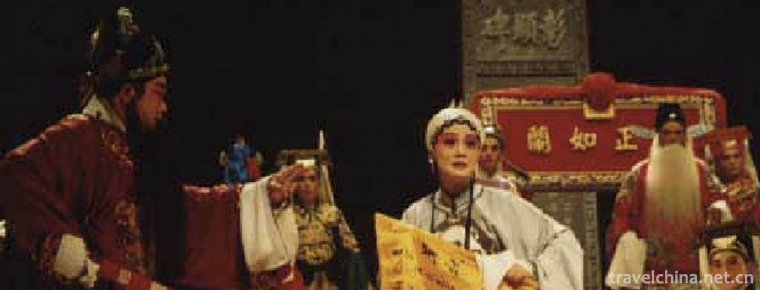
-
Twicecooked pork slices
Twice cooked pork is a traditional dish of Sichuan.
Views: 194 Time 2018-10-12 -
Oriental Giant Turtle Garden
Located on the East Bank of Yehe River in Pingshan County, Hebei Province, the Oriental Giant Turtle Garden is near Xibaipo, a sacred revolutionary site, 35 kilometers east of Shijiazhuang.
Views: 109 Time 2018-12-20 -
Eight Immortals Crossing the Sea Make Arhats
Eight Immortals Crossing the Sea and Arhat is a famous dish, which belongs to Confucian cuisine. Various raw materials, rich and fresh soup, beautiful color, such as eight immortals and Luohan.
Views: 263 Time 2019-03-27 -
Silk Weaving Techniques
Silk weaving is a traditional Chinese handicraft with a long history. It consists of four parts: Yuhang Qingshui silk sponge production technology, Hangluo weaving technology.
Views: 166 Time 2019-04-04 -
Heap harmonics
"Heap Harmony" first spread in the Yarlung Zangbo River Basin, the high terrain west of Shigaze to the whole area of Ali circle dance, and later gradually prevailed in Lhasa. It was the firs.
Views: 96 Time 2019-04-28 -
Qinghai Yuexian
Qinghai Yuexian is also called Yuexian, Yueyue Diao, Back Diao, Yueyue Diao, Meihu, etc. Qinghai Vietnamese String is one of the traditional folk songs in Qinghai Province. It can be called the ".
Views: 316 Time 2019-06-11 -
Tujia Waving Dance
Hand-waving dance is an ancient traditional dance of Tujia nationality. It mainly spreads in the Youshui River and Wujiang River basin at the junction of Hubei, Hunan, Chongqing and Guizhou. It mainly.
Views: 106 Time 2019-06-23 -
Nightlight Cup Carving
The manufacture of luminous cup needs 28 complicated processes. First of all, we need to select the material, then make the blank according to a certain size to form the preliminary noctilucent cup. F.
Views: 120 Time 2019-07-11 -
Bao Zheng Bao Qing Tian
Bao Zheng (999 - July 3, 1062), He Xi Ren. Luzhou Hefei (now) Anhui Hefei Feidong People. Northern Song Dynasty Famous ministers..
Views: 171 Time 2019-09-11 -
Zhang Jia Agui
Ah Kui (September 7, 1717 - October 10, 1797). Zhang Jiashi , word Guang Ting , Number Cloud cliffs Manchuria's blue flag people (after the war in Xinjiang were promoted to Zheng Bai Qi), a Bachelor o.
Views: 192 Time 2019-09-11 -
Fried peanuts
Fried peanuts is a dish made of peanuts and other materials. It belongs to the family dish and serves wine. When drinking, people often choose this dish as the next dish..
Views: 316 Time 2020-03-15
